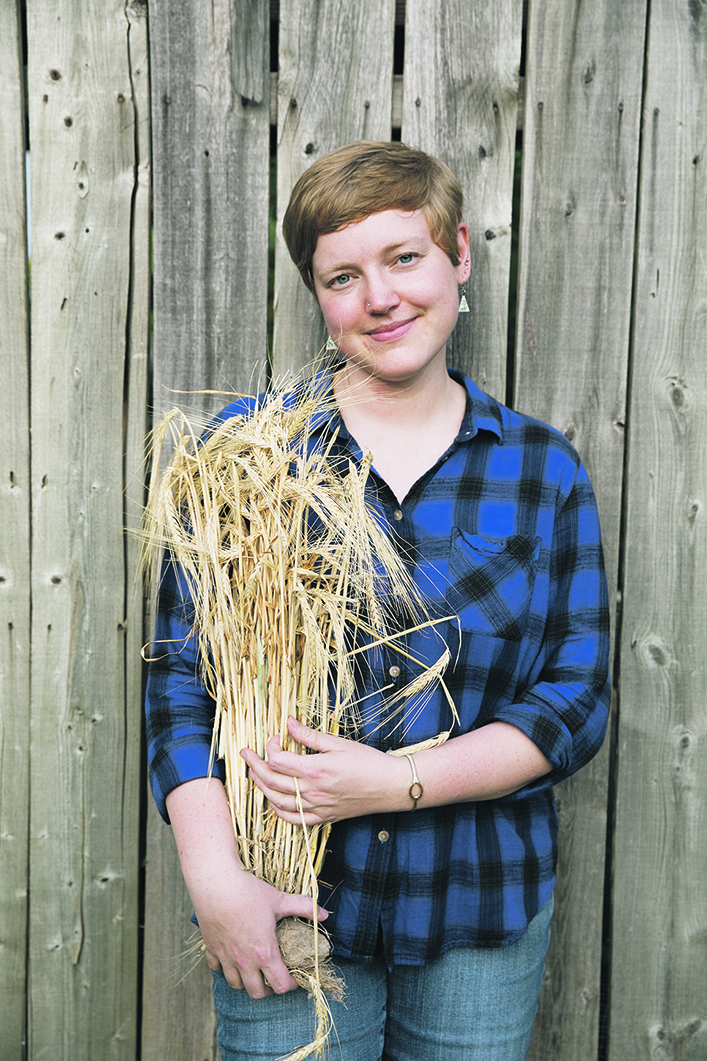McCain makes commitment to regenerative ag conversion

The company also promises to take steps to reduce carbon emissions from potato farming, storage and freight by 25 percent by 2030
As part of ambitious plans to deal with climate change, one of the world’s largest makers of frozen potato products has pledged it will only be supplied as of 2030 by farms that follow regenerative agriculture practices.
McCain Foods Ltd. plans to work with potato producers during the upcoming nine years to meet the target, which will affect about 3,500 growers across five continents, said Jess Newman, senior director of agriculture and sustainability.
The multinational company also plans to cut carbon emissions from potato farming, storage and freight by 25 percent by 2030, along with using 100 percent of every potato harvested.
Other measures include making all of its packaging compostable, recyclable or reusable by 2025, as well as cutting carbon emissions from all its operations in half and only using renewable electricity by 2030.
The company has 130 growers in Canada, including 36 in Manitoba and 30 in Alberta. The remainder are in New Brunswick, where the firm was founded on a potato farm in 1957.
The firm’s pledge can be thought of as “a flag on a hill,” said Newman.
“That’s where we’re going. We don’t have all the answers right now, but we do know those practices that are critical: armouring the soil, minimizing soil disturbance, enhancing crop and ecosystem diversity, for example.”
The company made the commitment as part of the June 7 release of its 2020 Global Sustainability report, Together: Towards Planet-Friendly Food.
Although the COVID-19 pandemic has outlined the precarious nature of the global food system, the biggest challenges are related to climate change, chief executive officer Max Koeune said in a company statement.
“It’s estimated that a quarter of man-made carbon emissions come from the production of food, and if we have to grow more food to feed more people, that will only intensify. If we don’t transform the way we grow food, the whole system is at risk of suffering irreparable damage.”
Newman said McCain Foods has already seen the impact of climate change and volatility on its potato growers, who are located in 16 countries ranging from the United States and United Kingdom to South Africa.

“We’ve seen crop failures, we’ve seen yield stagnation over time, declines in soil health, and that’s really a concern for us for our supply chains and for our growers, who are our most critical partners in the entire process of making delicious fries.”
The company is also responding to concerns by consumers about sustainability, she added.
“Regenerative agriculture calls back to a time when farming was based more on biology than chemistry, with a focus on soil health and quality,” said the company statement.
It minimizes things such as soil disturbances and maximizes crop diversity “as a way to increase water efficiency, protect against erosion, pump more nutrients into the earth, create greater resilience to drought and floods, capture more carbon, and increase the yield and quality per acre.”
Examples of practices McCain Foods regards as critical include reducing tillage across the rotation, as well as cover cropping and armouring soil, said Newman.
Other practices include reducing the intensity of chemical use and looking at alternatives that are less intensive, along with engaging in longer rotations and variable-rate farming, “lots of things that we know our growers are already doing,” she said.
“How exactly each of those practices will play out on a grower’s farm is ultimately up to them, right? They’re the experts; they know their operation best.”
McCain Foods will share the principles and criteria for the transition with growers in the coming months, she said. The company’s goal is to implement regenerative agriculture by 2030 “with 100 percent of our growers, which means they will have been trained, they will be soil testing and a minimum level of practices they will be meeting.”
It also wants 50 percent of its growers to be fully transitioned by that year, said Newman. Although the criteria are still being developed with growers and industry stakeholders, there will also be different intermediate criteria during the transition for each region.
Each region “in collaboration with our growers is going to map backwards in terms of what that means for each year between now” and 2030, she said.

The company plans to help producers by opening three Farms of the Future around the world by 2025, with the first being a company-owned facility in Florenceville, N.B., that is now operational.
“Its purpose is really to prove out and trial these regenerative agricultural practices, and that’s both the financial business case as well as the environmental business case,” said Newman.
“It’s very important to us that we are not asking growers to do something if we’re not sure that there is a financial business case behind it, and that’s what we will be working on at Farm of the Future in collaboration with our growers, our agronomist, as well as local universities.”
She acknowledged growers in different parts of Canada face unique conditions, such as Alberta’s shorter growing season and cooler climate. The mix of regenerative agricultural practices that make sense in one region may differ from what works elsewhere, she said.
When asked if McCain Foods will provide financial assistance to growers to help them make the switch, Newman said the company expects there will be many benefits simply from conducting regenerative agriculture.
However, if any practice doesn’t make sense financially, “we’re open to finding any solution going forward — also, when we think about our partnerships, that we need to establish some of those key partnerships around research, but also around financing options and partners, so those are all things that are on our to-do list moving forward that we hope to collaborate on with our growers.”
One of the company’s first steps will be to understand if there are any upfront costs involved in the transition, she said.
“We believe there is a business case, but we want to be able to show that clearly to our growers, so that’s our goal for the year.”
Source: www.producer.com

